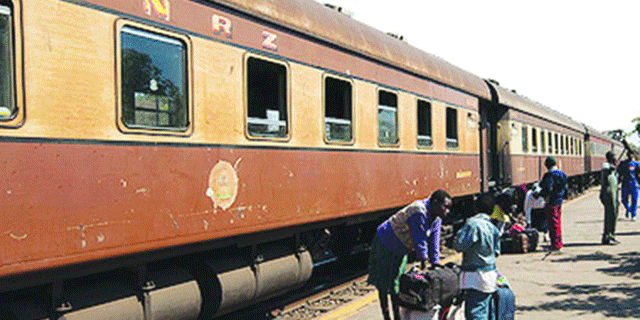
FAILURE by former National Railways of Zimbabwe (NRZ) employees to vacate the rail company’s houses in Westgate compromised the firm’s operations as staff meant to be occupying the properties stayed far from work and could not report for duty on time during emergencies, acting general manager Lewis Mukwada said yesterday. CHIEF REPORTER
He said the former workers drained the ailing parastatal of its mergre resources as it was forced to pay for all utilities.
Scores of former workers were left homeless after the Messenger of Court and armed police threw out their property and locked doors to the Westgate houses last month.
The former workers had been refusing to move demanding that they be compensated to the tune of $35 000 each first.
However, Mukwada said in a statement that some of the evicted former workers owned houses in Bulawayo and had left their lodgings to cccupy the parastatal’s accommodation.
He said the former workers were paid compensation which could be proved through cheque numbers.
“The NRZ Westgate security camp is a security cantonment area constructed on railway reserve land (land reserved for future railway development) and was established to house NRZ security personnel (155 in total),” Mukwada’s statement reads.
“It is a condition of occupation of such houses that upon leaving railways service, the employee will make way for serving employees to take occupation on the camp house.
- Chamisa under fire over US$120K donation
- Mavhunga puts DeMbare into Chibuku quarterfinals
- Pension funds bet on Cabora Bassa oilfields
- Councils defy govt fire tender directive
Keep Reading
“The cantonment concept is the same as that applicable to all security personal/institutions, for example, police officers, soldiers etc.”
Mukwada said the 24 evicted families “have for a long time (dating back to 2009) been refusing to vacate the camp accommodation to make way for serving security personnel”.
He said the houses were required to accommodate 50 serving NRZ security personnel who were on the waiting list – some of who had to be temporarily accommodated in offices at the security camps.
“The remainder stayed in various parts of Bulawayo thereby compromising reaction to emergencies as well as deployment. Further, the evictees were not making any payments towards rentals, water and electricity which the railways has been paying using its meagre resources,” he added.
Mukwada added that the affected were “aware for over five years of the need to move out of the NRZ houses and were not taken by surprise by the eviction”.
Last Saturday, over 1 000 NRZ workers staged a demonstration in Bulawayo demanding the immediate dismissal of the parastatal’s management after going for 10 months without salaries.
NRZ workers are owed in excess of $55 million in unpaid salaries.










